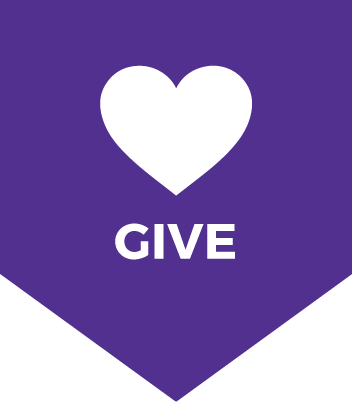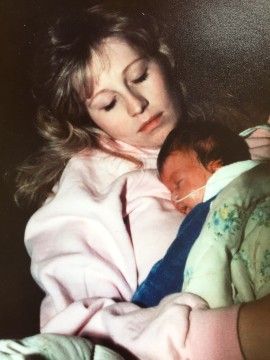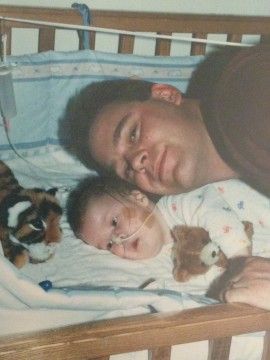My son came to me in a dream last night. He was still a baby, but now healthy and whole and miraculously able to speak. He said several things but in the typical way of dreams, most of what he said faded away immediately upon waking. Except this “I love you, Mom.” My joy upon hearing those words was immeasurable. Clayton was born on November 11, 1989 with a rare genetic disorder affecting him in ways so profound that his life expectancy was unbearably short. We were told he would not live out his first year. He would certainly never speak. He lived 6 months, 25 days and 1 hour. Once the fear of caring at home for our medically complex baby subsided to a tolerable level, every moment of his presence in our lives was held in the most sacred love and gratitude. Clayton’s dad and I loved him more fiercely and more tenderly than these 20-something, first-time parents could ever have conceived. Inevitably, the pain of his death was excruciating and the grief on many days felt like it would crush me to oblivion. There were brief moments when I would actually get absorbed in something else and forget, but the realization that my beloved child was gone would hit me again like a brutal punch to the gut. Miraculously I survived this agony and if this is your path, so too will you.
As a child, my favorite number was 11 simply because my own birthday is April 11. Later in life, I realized that these repeating 11’s had been with me from the beginning. My address growing up was 1133, my telephone number ended in 888, my daughter was born in March 1992 at 5:55 pm. My dad died on 8/8/88.
Clay was born on 11/11/89 and died on 6/6/90. Very shortly after his death, I began to see 11:11 on the clock daily. The magical number still makes itself known to me in many ways, every day. Without fail, I see 11 minutes after the hour on the clock, or the 11’s will jump out at me from license plates, billboards and street names. I know with a certainty beyond faith that this is Clay’s way of letting me know that he is always with me.
During his life, my most desperate prayer was that Clayton could feel my love. Because he could not likely hear or see, smile or sigh contentedly, I thought at the time that I had no way of knowing. But here’s the amazing part. I have come away from this experience not bitter and sad, but joyful and blessed, with a level of wisdom and compassion that I would not possess were it not for the gift of my son’s life and death. As a result, my greatest desire is to help heal the pain and suffering of children like Clay and their families, in an environment like our eventual Crescent Cove. I am now studying, practicing and moving towards certification as a Healing Touch practitioner. Because of all I’ve learned about the human energy field and the power of love, today I know without a single reservation that Clayton not only felt it, but that my pure, unconditional love was also a balm for any pain or discomfort he may have experienced.
As a first step toward sharing my love and compassion, I offer to you these 11 things to consider and remember in the hope that they will offer you solace and the courage to continue on as you navigate the grief that compares to nothing else.
1. Grief is a form of love. The depth of your grief is a pure testament to the depth of your love.
2. Allow grief in. If you pull yourself together and try to pretend that you can “handle” it, you build walls around your heart, closing it to the healing that letting love in can provide.
3. Allow happiness in. Back in those early days after he died, my young mind told me that feeling happy was a betrayal to Clayton. My fear told me that that everyone around me would move on and forget that this precious life ever existed. That as long as everyone saw me actively grieving, they could not possibly forget my son. My sadness would be my tribute. But would our children want sadness for us or would their most fervent longing be for us to once again find joy?
4. Find your tribe. An angel in the form of funeral director came into our lives when we needed him most. His name was Ron Troyer. On the day of Clayton’s funeral, Ron lovingly carried Clay’s casket up the church aisle and to his gravesite for our last goodbye. Before leaving us that day, Ron urged us to attend a meeting of The Compassionate Friends, with whom he was closely affiliated. This group was a life-saver for us. While it was hard to hear the myriad ways in which children could lose their lives, nobody understood us as well as those who had suffered the same loss. Their motto was “We need not walk alone.” Those group members who had lovingly remained active in the group years after their children had passed became for us beacons of hope. Hope that we truly could survive this grief and one day perhaps, begin to share our own healing love.
5. Take care of your body. This seems like a no-brainer, but in the midst of the lethargy and loss (or increase) of appetite caused by grief, it can be hard to take good care of yourself. You will be much better equipped to face the days of loss when you remain very intentional about eating well and exercising when you can.
6. Ask for and accept help. Do not hesitate to cast a broad net if you need help. Assistance could come in many forms from unexpected places. Many people would love to help but may not know how to offer it. The idea of not needing anyone, of being able to go it alone, has somehow through the years become perceived as noble. Exhaustion is not a badge of honor. The ability to get along without anyone’s help is not an indication of strength. When you close yourself off from accepting the loving assistance of others, you close yourself off to both receiving and giving joy. We can show as much love to others by receiving as we can by giving.
7. Be honest. Don’t hesitate to tell people what you do and do not need. They will appreciate knowing either way.
8. There is no deadline. For some reason, people think one year is the appropriate amount of time to grieve and they start to tell you it’s time to “get on with your life.” This was a topic of difficulty for many members of Compassionate Friends. I vividly recall a CF meeting when family and friends were invited to discuss this topic. Ron Troyer asked them to imagine for a moment that it was their own child who had passed. Most people could think about it for only a few seconds and needed to stop. It was too unbearable to imagine. Ron reminded them that those of us who had lost our kids did not have the luxury of putting it out of our minds. It is simply too hard, even for those closest to us to be empathetic to our plight. Only you will know best when and how to proceed with “normal” life.
9. Treat yourself kindly. As the parents of medically complex or terminally ill children, many of us are astonished to discover how strong we truly are. For some, it can even become a point of pride (and rightfully so) how well we manage a life that is so foreign and scary to others. We hold up and it becomes a way of life. When our children pass away, we may consciously or unconsciously continue this way of life. Being strong for someone else’s sake is admirable and necessary, but this mindset does not necessarily translate to taking care of ourselves in the midst of deep sadness. Self-nurture is a lovely way to practice compassion towards yourself. Get that massage if it would make you feel good; go to a nice restaurant, splurge on tickets to the big game or take that hour-long candlelit bath. You deserve it.
10. It will get easier. As hard as it is to imagine, the old adage that “time heals all wounds” is actually true. Even this wound. Clayton has been gone 25 years now and if you’d told me in 1990 that I would be truly happy one day, I may not have believed you. But I do truly live a contented life of abundant gratitude. I have a wonderful husband and a 23-year-old daughter who fill me with absolute pride and joy every day.
11. Learn the basics of Healing Touch. This can be an invaluable tool for those in the midst of grief or those actively caring at home for children with shortened life expectancy. I hope to start a parents’ group to teach you some wonderful, simple ways to relieve pain, anxiety and a host of other issues that are especially prevalent among our Crescent Cove families. If you are interested in exploring this for yourselves or for your children, please feel free to call me at 651-433-0144.
I wish you comfort, support, love and light along the way.
Written by: Lee Thompson Kent



